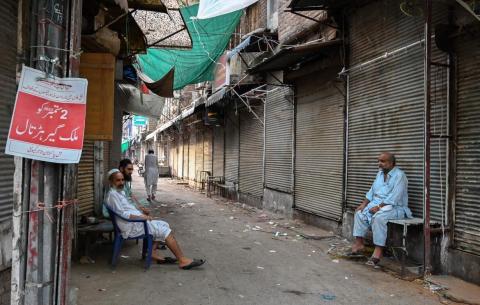Pakistan shopkeepers strike nationwide over inflation

Thousands of Pakistan traders shuttered their shops on Sept. 2, striking over soaring energy and fuel bills stirring widespread discontent ahead of national elections.
Decades of mismanagement and instability have hobbled Pakistan's economy, and this summer Islamabad was forced into a deal with the International Monetary Fund (IMF) to avert default.
However, the global lender demanded that popular subsidies cushioning living costs be slashed. Petrol and electricity prices have rocketed.
There were widespread market closures on Sept. 2 in Lahore, Karachi and Peshawar, where abandoned bazaars were posted with placards decrying "the unreasonable increase in electricity bills and taxes."
"Everyone is participating because the situation has become unbearable now," Lahore's Township Traders Union president Ajmal Hashmi told AFP.
"Some relief must be given so people can put food on the table."
Traders wield immense power in Pakistan, and with an election due in the coming months the government faces the delicate task of keeping them onside while sticking to IMF austerity measures.
Pakistan has historically been hamstrung by chronically low tax takings - including from traders - which have seen it accrue huge foreign debts it struggles to pay down.
The IMF hopes to end a cycle of bailouts which have propped up the economy for decades.
On Sept. 1, caretaker prime minister Anwaar-ul-Haq Kakar said citizens would have to pay inflated bills as there is no "second option."
The government raised petrol prices past the threshold of 300 rupees ($1) per liter for the first time this week.
That exchange rate against the dollar is the lowest in the nation's 76-year history.
Year-on-year inflation in...
- Log in to post comments







